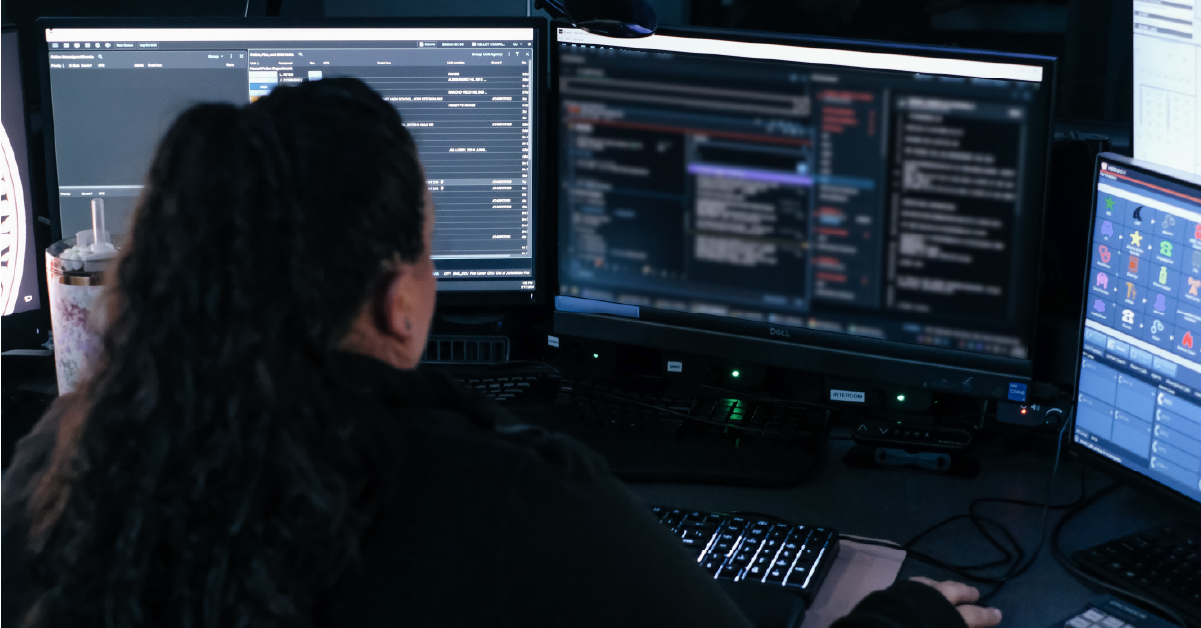Imagine a future in which tech — likely powered by artificial intelligence or natural language processing — gauges when an officer has undergone too many emotionally taxing calls. That same product would alert supervisors to the officer’s plight, advising them to take the stressed individual out of the field until they’d recovered.
This is part of the future the participants of South by Southwest’s “How to Bring Public Safety Into the 21st Century” panel described Friday afternoon. The participants — which included retired Boston Police Department Superintendent Paul Fitzgerald, Seattle Police Department Chief Strategy Officer Chris Fisher, and police software company Mark43 co-founder Matthew Polega — discussed the future of law enforcement technologies in great detail, addressing both their vast potential as well as the inherent challenges that must be overcome to realize it.
Central to the discussion was an assertion that good community policing will almost certainly remain human-based. There is not, in effect, a scenario any of them see in which actual human police officers are replaced by algorithms or drones. The movie Robocop is — for myriad reasons — not a future that any of us should be waiting for. Ditto to the predictive one in the movie Minority Report.
“It’s not looking into the future,” Fisher said of using AI to help with officer wellness, “it’s counting how many bad things have happened and if you’ve passed a threshold. We can use technology to be looking at how a person’s doing.”
In the future it is all but certain that tech will become an increasingly valuable resource for officers as they do their jobs, like an invaluable partner that goes mostly unseen. In addition to using AI as described above to improve officer wellness, advanced technologies could help police get better and faster data in the field, data that can help them complete investigations, find safety risks, or simply write reports faster so they can get back on the streets.
These are, for obvious reasons, all great things, and watchers of the tech space know that they’re not far-fetched, that we in fact have the capabilities to do all these things now. The main limitation, however, are the usual challenges common to local government, including funding, community support and cooperative relationships with technologists.
Systemically, tech within police departments has long been looked at as a luxury, the panelists noted, with the vast majority of allocated budgets — generally between 85 and 90 percent — going to personnel. There is, however, increasing buy-in at all levels to make larger investments. As with many segments of government, though, technologists and startup entrepreneurs can sometimes be reticent to work in the government space. Polega’s company, Mark43, is an outlier in that regard, having worked for nearly a decade with law enforcement agencies across the country, including the Massachusetts State Police, among others. Mark43 is currently working with the Seattle Police Department.
The history of that company is perhaps illustrative of some of the challenges new companies face in entering the space. The initial idea — which Polega and collaborators developed as students — was to use data analysis to aid police combating criminal organizations. What they found, however, was that for any analysis to be effective, police must first be cataloging and sharing good data. So Mark43 pivoted to meet the need it identified.
The larger lesson that this speaks to is that human-centered design practices, including extensively researching the experience of the actual people who use the products, are vital. There are also lessons to be learned about being agile and not expecting a fast and immediate payday. The other side of that is that the return is a long-time loyal customer and a rewarding guiding mission, Polega said.
“There’s a lot of boring problems here,” Polega said, by way of advice to other company founders, “and it just so happens that no one else wants to work on them, no one else finds them interesting. There’s a lot of opportunity in that.”





